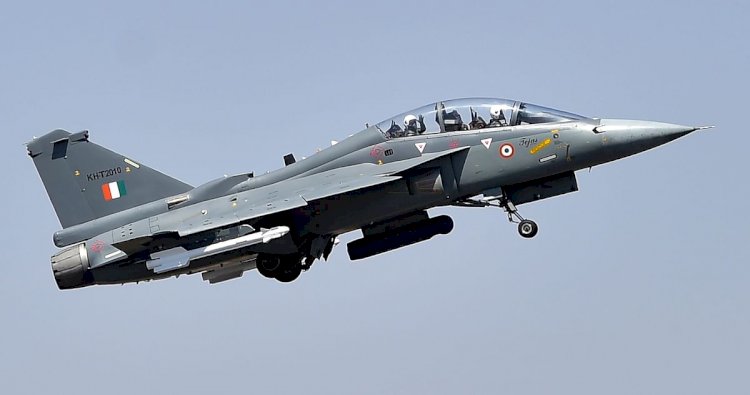Govt clears ₹48k-cr Tejas deal, first deliveries in 2024
“The LCA-Tejas is going to be the backbone of the IAF fighter fleet in years to come. LCA-Tejas incorporates a large number of new technologies many of which were never attempted in India.

Defence minister Rajnath Singh calls pact a ‘game changer’ for self-reliance in Indian defence manufacturing. India’s Cabinet Committee on Security (CCS), headed by Prime Minister Narendra Modi, on Wednesday approved a much-awaited ₹48,000-crore proposal to buy 83 advanced Tejas jets to bolster the Indian Air Force (IAF)’s combat potential, with defence minister Rajnath Singh calling the largest indigenous defence procurement deal “a game changer for self-reliance in the Indian defence manufacturing” sector. The CCS approval came 10 months after the ministry gave the green light to the purchase of 83 LCA (light combat aircraft) Mk-1A jets from state-owned plane maker Hindustan Aeronautics Limited (HAL). The indigenous content of the jets will progressively increase as the production moves along.
“The LCA-Tejas is going to be the backbone of the IAF fighter fleet in years to come. LCA-Tejas incorporates a large number of new technologies many of which were never attempted in India. The indigenous content of LCA-Tejas is 50% in Mk-1A variant which will be enhanced to 60%,” Singh said in a statement posted on his Twitter timeline.The aircraft to be ordered include 73 Mk-1A fighter jets and 10 LCA Mk-1 trainer aircraft, the defence ministry said in a statement.
The sheer number of fighters to be ordered and the capability that the Mk-1A variants will bring along with their modern weapons will significantly enhance the staying power and combat potential of the IAF, said Air Marshal KK Nohwar (retd), director general, Centre for Air Power Studies.“The approval for the deal couldn’t have come at a better time considering the strong message it will sent to India’s neighbourhood. Also, it reflects the government’s sharp focus on the Atmanirbhar Bharat Abhiyan (self-reliant India movement,” Nohwar said.
HAL is expected to provide the first Mk-1A deliveries to the IAF three years after the deal is signed, with all the aircraft likely to be delivered by 2028-29. The Mk-1A programme is expected to generate thousands of jobs and will involve the participation of more than 500 Indian companies, the officials said. “HAL has already set-up second line manufacturing facilities at its Nasik and Bengaluru Divisions. Equipped with the augmented infrastructure, the HAL will steer LCA-Mk1A production for timely deliveries to the IAF,” Singh said in another tweet. The deal for the 83 Mk-1A jets will take the total number of Tejas variants ordered to 123.
The 40 LCAs already ordered by the IAF are in the initial operational clearance (IOC) and the more advanced final operational clearance (FOC) configurations. The LCA Mk-1A will come with additional improvements over the FOC aircraft, making it the most advanced Tejas variant so far. The Mk-1A variant is expected to come with digital radar warning receivers, external self-protection jammer pods, active electronically scanned array (AESA) radar, advanced beyond-visual-range (BVR) missiles and significantly improved maintainability.
The AESA radar, BVR missiles, electronic warfare (EW) suite and air-to-air refuelling are critical capabilities that will make the LCA Mk-1A a potent platform that meets the operational requirements of the IAF, the defence ministry said in a statement. “The decision taken today will considerably expand the current LCA ecosystem and help in creating new job opportunities. HAL follows a system integrator model in LCA Mk-1A program and acts as an umbrella organisation, fostering manufacturing & design capabilities in pvt. Industry,” the defence minister tweeted. The Tejas programme will boost the Atmanirbhar drive in the aerospace and aeronautics sectors, said HAL chairman R Madhavan.




























